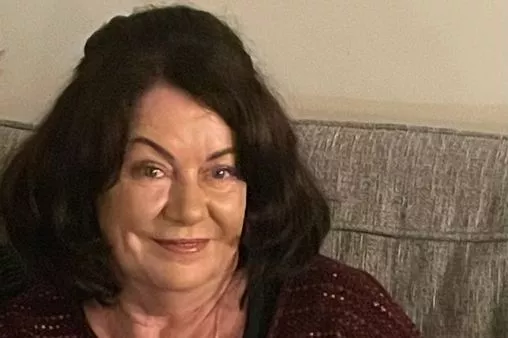Top Stories
Dublin Mum Urges Women to Recognize Ovarian Cancer Symptoms

UPDATE: A mother from Dublin is sounding the alarm after her shocking diagnosis of stage 4 ovarian cancer, which followed months of misinterpreted symptoms. Deirdre Fennelly, diagnosed in 2021, is now urgently urging women to understand the critical signs of this often-silent disease.
Deirdre, a mother of three, initially attributed her symptoms, including a “very bloated tummy,” to unrelated health issues. She recounted her struggles, stating, “I would have had multiple UTIs and went to the doctor regularly. My body was desperately trying to tell me something was seriously wrong, but I didn’t listen.”
The warning signs began with persistent bloating and abdominal discomfort, which led her to join WeightWatchers, unaware that these were indications of ovarian cancer. “I thought I had kidney stones when I experienced excruciating pain,” she said, recounting a visit to an emergency room that only further delayed her diagnosis.
IMPORTANT: Deirdre was ultimately diagnosed after a CT scan revealed a tumor on her left ovary. This diagnosis came with a staggering 25% chance of survival. “I couldn’t understand how my life could flip so drastically,” she expressed, describing the emotional turmoil of facing cancer while navigating family life.
Despite the dire prognosis, Deirdre underwent a rigorous treatment plan, including nine weeks of chemotherapy and a significant surgical procedure known as HIPEC (Hyperthermic Intraperitoneal Chemotherapy). “They took whatever they could get their hands on, even my appendix,” she shared.
After enduring a grueling two years of treatment, Deirdre received the miraculous news that she was in remission. “I would have thought that a stage four diagnosis was the end of the road, but apparently not,” she stated with relief.
Her experience shines a light on the misconception that cervical screenings can detect all gynecological cancers. Deirdre emphasizes that ovarian cancer cannot be detected through cervical screenings, a critical point she wants every woman to understand. “One in three women, myself included, mistakenly believe that cervical screenings check for all gynecological cancers,” she warned.
The Health Service Executive (HSE) has confirmed that key symptoms of ovarian cancer include persistent bloating, abdominal discomfort, and the need to urinate more frequently. Deirdre’s story serves as a critical reminder of the importance of awareness and education regarding this often-overlooked disease.
As she continues to advocate for increased research and awareness, Deirdre’s message is clear: “Just because you go for your cervical screening doesn’t mean your entire reproductive system is okay.”
Her journey from diagnosis to remission underscores the importance of listening to one’s body and seeking prompt medical advice. Deirdre encourages women to be vigilant and proactive about their health, emphasizing that early detection can make a significant difference.
For more information on symptoms and support, the HSE provides resources for women to educate themselves about ovarian cancer. Deirdre’s compelling story is a call to action, urging women everywhere to take their health seriously and to recognize the signs that could save their lives.
Stay tuned for further updates on ovarian cancer awareness and research advancements.
-

 Top Stories2 months ago
Top Stories2 months agoTributes Surge for 9-Year-Old Leon Briody After Cancer Battle
-

 Entertainment3 months ago
Entertainment3 months agoAimee Osbourne Joins Family for Emotional Tribute to Ozzy
-

 Politics3 months ago
Politics3 months agoDanny Healy-Rae Considers Complaint After Altercation with Garda
-

 Top Stories3 months ago
Top Stories3 months agoIreland Enjoys Summer Heat as Hurricane Erin Approaches Atlantic
-

 World4 months ago
World4 months agoHawaii Commemorates 80 Years Since Hiroshima Bombing with Ceremony
-

 Top Stories2 months ago
Top Stories2 months agoNewcastle West Woman Patricia Foley Found Safe After Urgent Search
-

 Top Stories4 months ago
Top Stories4 months agoFianna Fáil TDs Urgently Consider Maire Geoghegan-Quinn for Presidency
-

 World4 months ago
World4 months agoGaza Aid Distribution Tragedy: 20 Killed Amid Ongoing Violence
-

 World4 months ago
World4 months agoCouple Convicted of Murdering Two-Year-Old Grandson in Wales
-

 Top Stories3 months ago
Top Stories3 months agoClimbing Errigal: A Must-Do Summer Adventure in Donegal
-

 Top Stories3 months ago
Top Stories3 months agoHike Donegal’s Errigal Mountain NOW for Unforgettable Summer Views
-

 World4 months ago
World4 months agoAristocrat Constance Marten and Partner Convicted of Infant Murder









